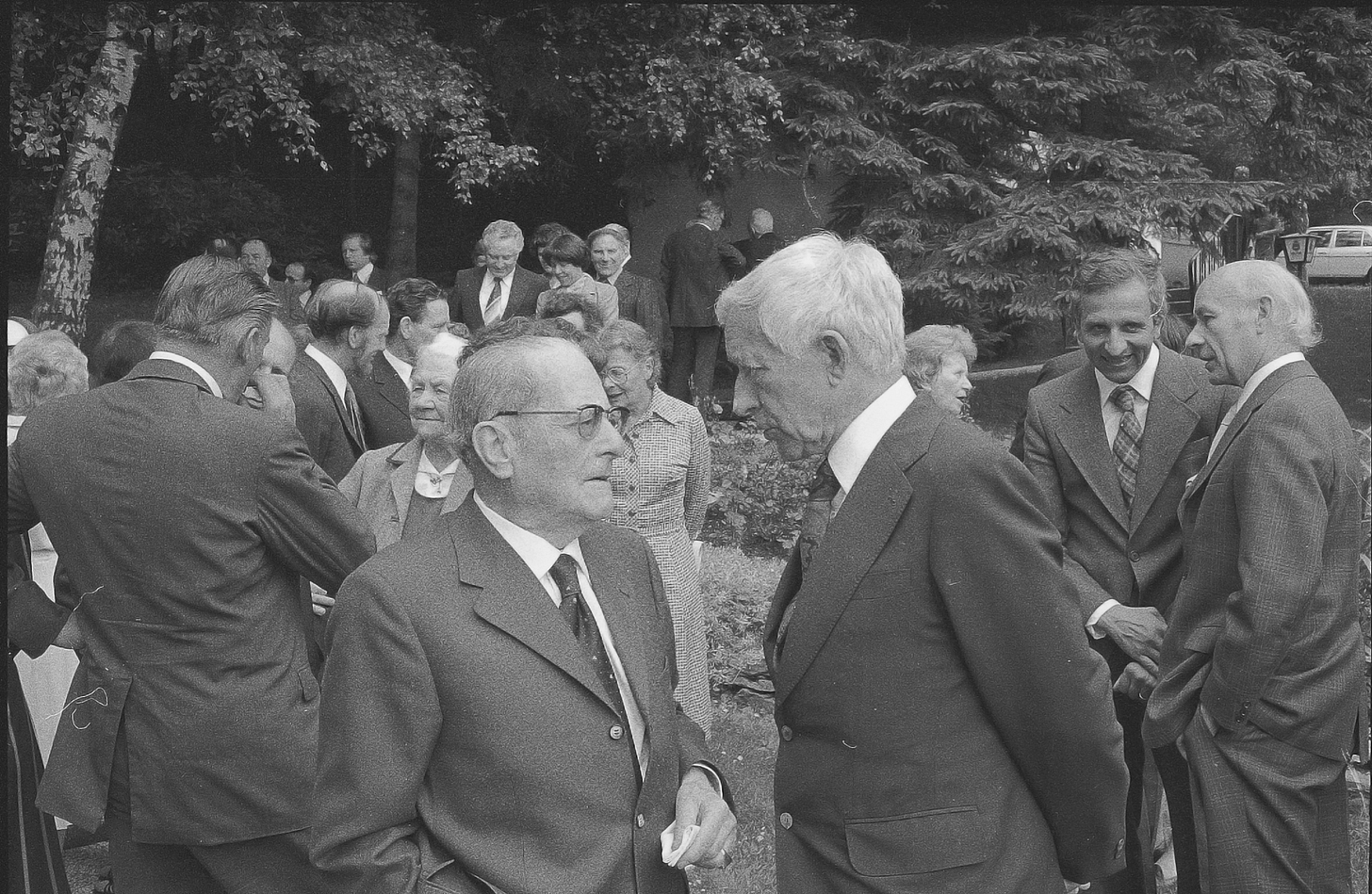Journal Note on Carl Schmitt's Death and Ninetieth Birthday Address - Ernst Jünger
After Easter, 1985
Carl Schmitt died this year on Easter morning – which is a good date, not only for a Christian. In leafing through our correspondence I found my commendations for his ninetieth birthday in Plettenberg on 11 July 1978:
“Dear Carl Schmitt: It would be carrying owls to Athens if I tried to add anything to the tributes to your work that we have just heard from professionals. However, let me make a few personal remarks.
First of all, I would like to congratulate you on behalf of your godson, Carl Alexander – who, unfortunately, was unable to escape his practice in Berlin.
Especially close to my heart, however, is your dear wife Duschka, who is no longer with us. I remember the many happy hours we spent together at your home in Steglitz – often as a foursome with my wife Greta, or as part of a larger party. These meetings lasted throughout the war, when I had work in Berlin, and continued on afterwards...
Your friends know that you, dear Carl Schmitt, not only excel in your field, but that you are also highly engaging in personal matters. You hold great insight, even in the fine arts and specialized areas of knowledge, such as graphology and astrology. I find the unexpected turns you can take in a conversation to be particularly striking. It adds a peculiar and special charm to discussions.
To give you an example: I once remarked on the occasion of one of the inconveniences that befell you as a constitutional lawyer: “These are the misfortunes of the profession.” You heard about this and said: “You have to know what the vowel “I” means to Ernst Jünger.”
Those who love good and sharp differentiations will get their money’s worth with you – both in work and conversation. At times it seems to me that this ability and inclination for unexpected turns of phrase has been passed on to those in your circle. I also see this trait in your daughter Anima, who came to visit us today from afar. Once, when you were suffering from excruciating sciatica, the child stood wistfully at your bedside and said: ‘It must be because you ate my Easter Bunny.’
I don’t want to dwell on those memories. Rather, I want to thank you for the hours we spent together in Berlin and Paris, in Plettenberg, Kirchhorst, and Wilflingen – often drinking wine late into the night.
Good partners are rare these days - I am thinking of Vico and Galiani in Naples, for example, or Machiavelli in Florence - and I don’t mean that in a universal sense. Rather, it is an ideological and, above all, political commitment that makes the conversation either flat or dull. One finds what one expects rather than, as with you, the unexpected. This applies to your letters as well as to your life in general. We thank you for that.
I raise my glass along with your friends. We drink to your health and well-being.”




